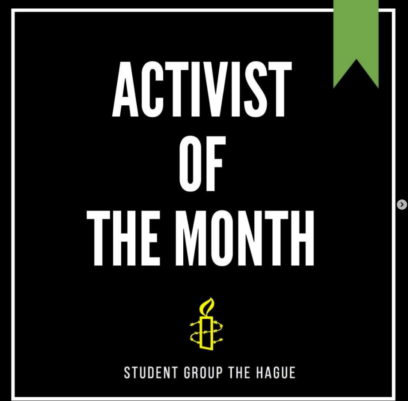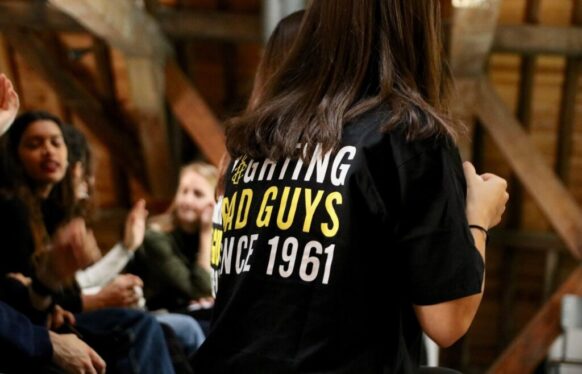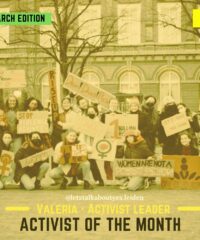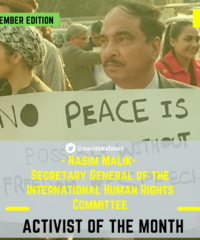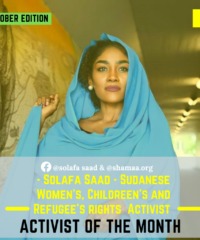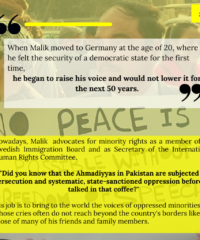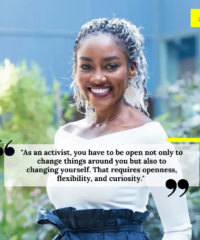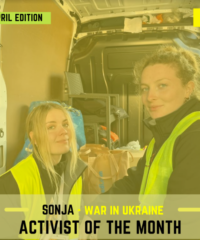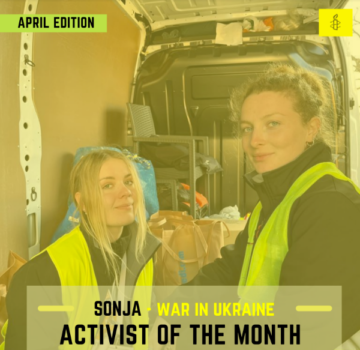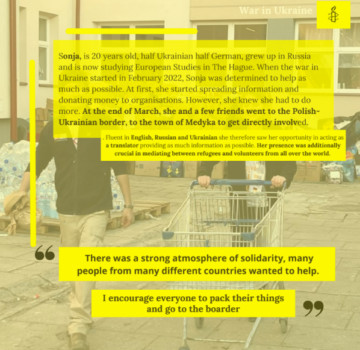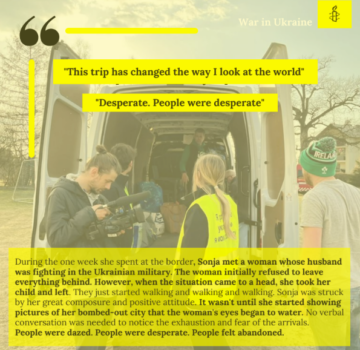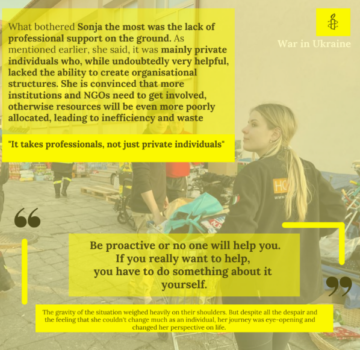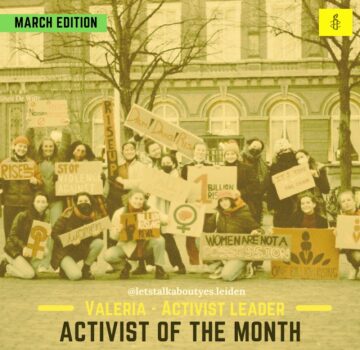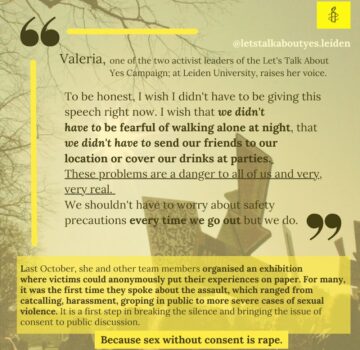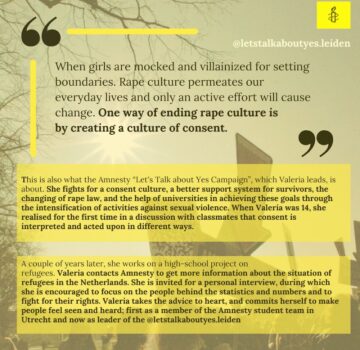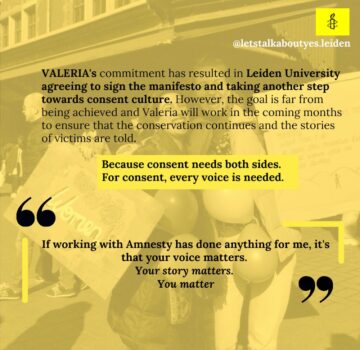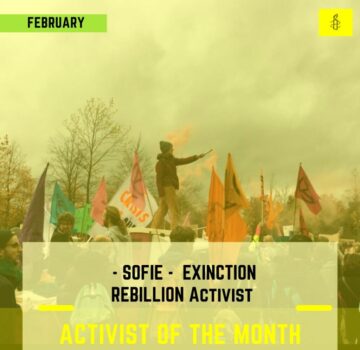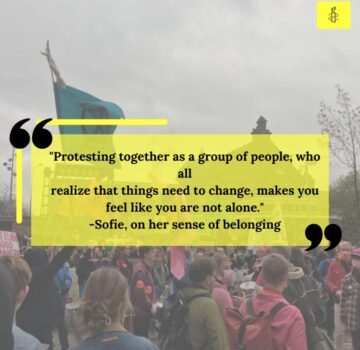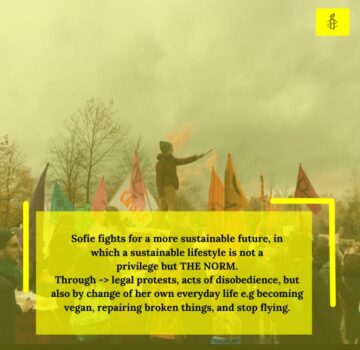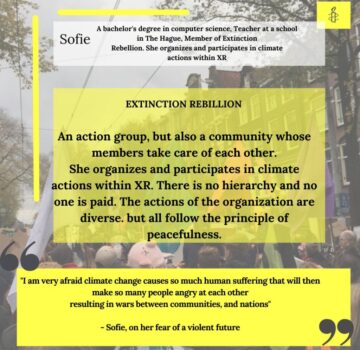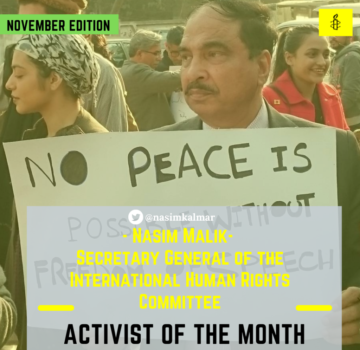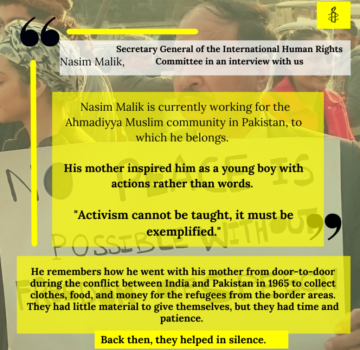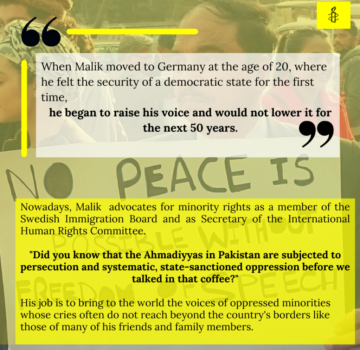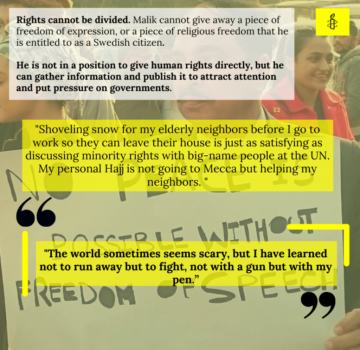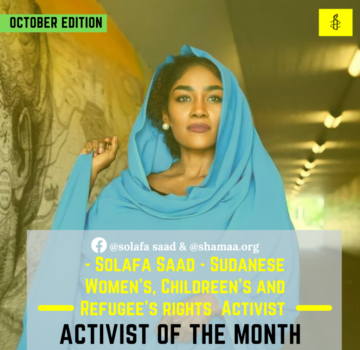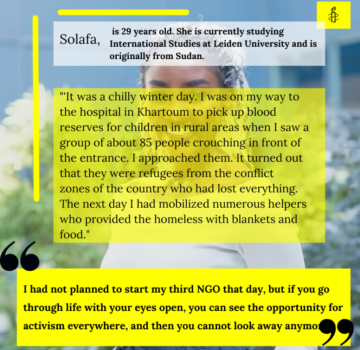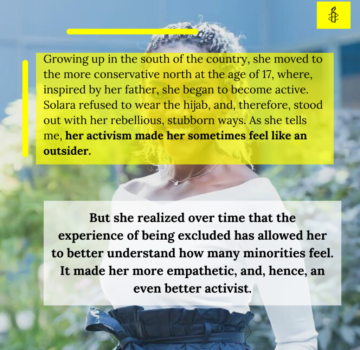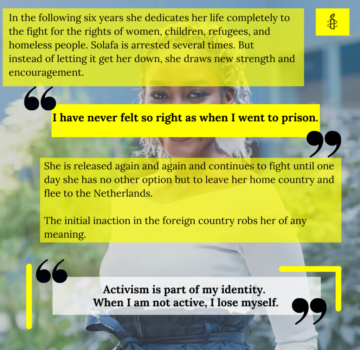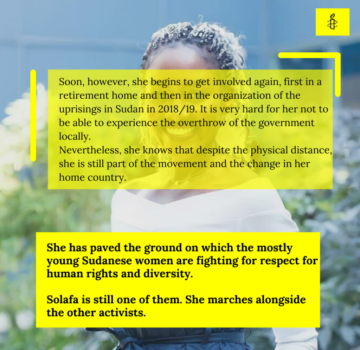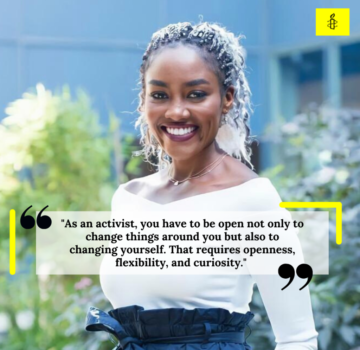It has been almost two months since the Russian government invaded Ukraine. In the last 50 days we have seen terrible images, but at the same time many extremely dedicated and determined people who have come together and done great things to support Ukrainian refugees. One of them is Sonja.
Sonja is 20 years old, half Ukrainian half German, grew up in Russia and is now studying European Studies in The Hague. When the war in Ukraine started in February 2022, Sonja was determined to help as much as possible. At first, she started spreading information and donating money to organizations. However, she knew she had to do more. At the end of March, she and a few friends went to the Polish-Ukrainian border, to the town of Medyka to get directly involved. During our interview, Sonja was calm, unwavering and strong-willed. She spoke confidently and encouragingly, but her concern was unmistakable.
“The solidarity at the border was so encouraging”
Not knowing what to expect, Sonja and her friends arrive at the border. She was overwhelmed by how many people were there to help. “There was a strong atmosphere of solidarity, many people from many different countries wanted to help.” When she arrived, she was shocked by how disorganized everything was. “It was mostly private people who got together in their spare time, but there was hardly any institution that provided structure and organization.” Sonja was also struck by the lack of communication between institutions and refugees. Fluent in English, Russian and Ukrainian she therefore saw her opportunity in acting as a translator providing as much information as possible. Her presence was additionally crucial in mediating between refugees and volunteers from all over the world. Nevertheless, Sonja mentioned how sobering it was for her not to know much while being the messenger. Still, she conveyed a sense of security and hope to those arriving by her mere presence.
“Desperate. People were desperate”
During the one week she spent at the border, Sonja met a woman whose husband was fighting in the Ukrainian military. The woman initially refused to leave everything behind. However, when the situation came to a head, she took her child and left. They just started walking and walking and walking. Sonja was struck by her great composure and positive attitude. It wasn’t until she started showing pictures of her bombed-out city that the woman’s eyes began to water. No verbal conversation was needed to notice the exhaustion and fear of the arrivals. People were dazed. People were desperate. People felt abandoned.
“This trip has changed the way I look at the world”
Sonja mentioned several times how this trip opened her eyes. Knowing the impact a few euros can have, she now pays even more attention to her spending. In addition, the experience at the border has significantly changed her perception of the important things in life. She realized that we often focus on the wrong things and get bothered by small inconveniences. Sonja lost her wallet on the way home. Before being at the boarder, this would have affected her greatly. But now she can put her problems more into perspective and knows how easily these issues can be solved. “It’s annoying, but it’s nowhere near as bad as it seemed before,” she says.
“It takes professionals, not just private individuals”
What bothered Sonja the most was the lack of professional support on the ground. As mentioned earlier, she said, it was mainly private individuals who, while undoubtedly very helpful, lacked the ability to create organizational structures. She is convinced that more institutions and NGOs need to get involved, otherwise resources will be even more poorly allocated, leading to inefficiency and waste.
During her stay at the boarder but even more here ,in The Hague, Sonja has also experienced hatred against Russians. She emphasizes how anger against innocent people is fueling an already escalating situation. Racism against the Russian people is not a solution; it only makes the situation worse.
“I encourage everyone to pack their things and go to the boarder”
Regardless of Sonja’s ambitions and her already extremely impressive contributions, she is still a student and cannot spend all her time helping. She therefore calls on other students to get involved by first acquiring a sound knowledge to distinguish between correct and incorrect sources. Consequently, spread the right information and raise awareness, whether through social media or on a direct, personal level. Another way to get involved is through monetary help or the donation of goods (no more clothes but rather canned food and meds!!). However, if you are considering a donation, she advocates to do your research on the NGO and rather choose a smaller organization where you know exactly where the money is going, she argues. For example, Sonja recommends „Hope Onlus“, an NGO she has worked with locally. In addition, people should team up, rent a van and drive directly to the border. Sonja emphasizes not only how important it is to get directly involved, but also how encouraging and eye-opening it is to help on the field.
Sonja also urges universities to provide more knowledge. She highlights how well the universities in The Hague support (potentially) affected people. However, it is equally important to provide more information about the current situation and give guidelines on how students can get involved. After all, deeper knowledge inevitably leads to more engagement.
The gravity of the situation weighed heavily on their shoulders. But despite all the despair and the feeling that she couldn’t change much as an individual, her journey was eye-opening and changed her perspective on life. Sonja’s trip was reassuring in the sense that all the time and energy spent was absolutely worth it, and she encourages everyone to do the same.
Sonja’s closing comment on activism was.
“Be proactive or no one will help you. If you really want to help, you have to do something about it yourself”.
